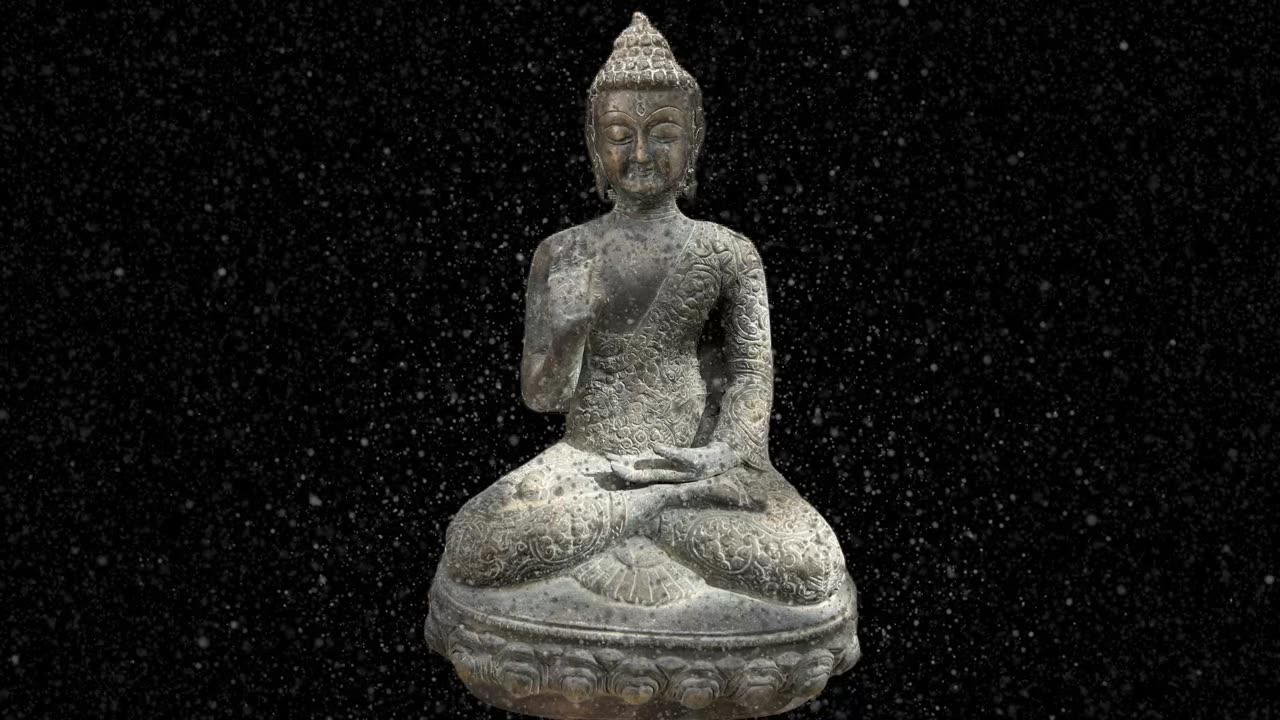Premium Only Content

Understanding Anger from a Buddhist perspective
Buddhist nun Gen Drolkar gives a talk on understanding anger and transforming Anger. This talk is followed by a guided meditation.
Buddhist Perspective on Anger
According to Buddhism, anger is one of the six root kleshas (detrimental emotional states) that can cloud the mind and lead to suffering. It arises from a misunderstanding or misperception of a situation, and its root lies in ignorance (avidya) and ego-clinging (attachment to a false sense of self). Here are some key insights from a Buddhist perspective:
1. Impermanence of Anger: Anger is a fleeting, impermanent emotion that arises and passes away. Recognizing its impermanence can help us detach from it and cultivate mindfulness.
2. Root Causes of Anger: Buddhist teachings identify three primary causes of anger: * Ignorance (avidya): Misunderstanding or misperceiving a situation. * Ego-clinging (attachment to a false sense of self): Defending one’s own interests and identity. * Craving (trsna): Desire for something that is not present or is not satisfying.
3. Transforming Anger: Buddhism offers several strategies for transforming anger: * Mindfulness (smrti): Observing anger as it arises, without judgment or reactivity. * Loving-kindness (metta): Cultivating compassion and understanding towards oneself and others. * Wisdom (prajna): Recognizing the impermanence and emptiness of anger, and the futility of trying to eliminate it through suppression or aggression.
4. Working with Anger: Buddhist practitioners use various techniques to work with anger, including: * Recognizing and acknowledging anger as it arises. * Practicing mindfulness and loving-kindness meditation to cultivate awareness and compassion. * Engaging in constructive actions to address the root causes of anger, such as addressing injustice or resolving conflicts.
5. The Antidote to Anger: Patience (ksanti) is considered the antidote to anger. By cultivating patience, we can develop the capacity to tolerate difficulties and challenges without becoming reactive or aggressive.
6. The Interdependence of Anger: Buddhist teachings emphasize the interdependence of all phenomena, including emotions like anger. Recognizing this interdependence can help us understand that anger is not solely an individual problem, but rather a manifestation of the complex web of causes and conditions that shape our experiences.
7. The Path to Liberation: Ultimately, the Buddhist path aims to transcend anger and other negative emotions by cultivating wisdom, compassion, and insight into the true nature of reality. By understanding anger as an impermanent and empty phenomenon, we can develop the freedom to respond to challenging situations in a more skillful and compassionate manner.
In summary, the Buddhist perspective on anger emphasizes its impermanence, root causes, and the importance of transforming it through mindfulness, loving-kindness, and wisdom. By recognizing the interdependence of anger and cultivating patience, we can develop a more compassionate and skillful response to challenging situations, ultimately leading to greater freedom and liberation.
-
 12:32
12:32
Bearing
23 hours agoAustralian Gender Clinic Caught SECRETLY Transitioning Kids 🤬🤬
13.5K52 -
 4:34
4:34
AlaskanBallistics
1 day ago $0.07 earnedFosTech Echo Trigger
7.52K10 -
 9:10
9:10
ariellescarcella
12 hours agoI Asked People To Toss Out An Identity : The Queer Alphabet Is OVER
5.48K4 -
 27:00
27:00
Squaring The Circle, A Randall Carlson Podcast
19 hours agoSPECIAL EPISODE: #037 Randall Carlson Explains The Vital Role of Sacred Geometry in the Modern Age
6.26K2 -
 58:35
58:35
Trumpet Daily
20 hours ago $3.93 earnedThe Trade War Begins - Trumpet Daily | Feb. 3, 2025
20.6K34 -
 47:03
47:03
Uncommon Sense In Current Times
18 hours agoArrested For Praying Silently in Western Culture and Convicted
13K1 -
 44:19
44:19
PMG
16 hours ago $0.01 earnedIn the wake of a tragedy! Finding hope in broken times
8.34K -
 3:40:50
3:40:50
FreshandFit
10 hours agoGirls Walk Off Pod After Being Exposed As Thots By Chat! 🤣
111K120 -
 5:30:06
5:30:06
SpartakusLIVE
14 hours ago#1 King of Content kicks off YOUR week with Monday MOTIVATION
133K8 -
 5:56:52
5:56:52
Akademiks
12 hours agoKendrick Lamar Sweeps Grammys. Drake announces new album on Feb 14. Rocky Trial Might get Dismissed?
106K6